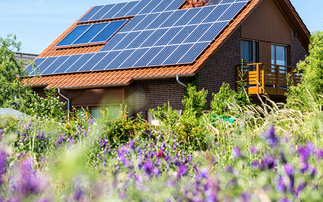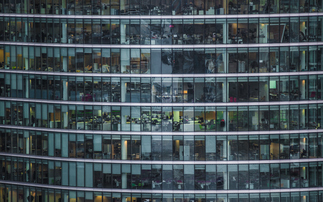Investing in greener buildings and offices delivers significant financial, environmental and wellbeing returns, argues BNP Paribas Real Estate UK CEO Andy Martin
As we move towards an age of greater responsibility - alongside some of the most significant, life changing advances in technology - I think we would all agree that a sustainable future requires more longer-term thinking, particularly from business leaders.
As voting populations become more vocal, central governments have no choice but to respond to those that put them in power and focus on long-term goals and outcomes. Just as governments must think beyond the change deemed possible in four or five years of elected office, business leaders must try to move away from the ubiquitous short-term investment models. Technological advances can no longer come at the expense of environmental or social impact.
For many years, the argument against green strategies was that they didn't pay back, but against the backdrop of Verizon's first green bond issue, which was eight times oversubscribed and the company's most popular security ever sold, it is clear that this is changing. The Morgan Stanley Institute for Sustainable Investing analysed the returns from nearly 11,000 mutual funds from 2014 to 2018, which found sustainable funds experienced a 20 per cent lower downside deviation to traditional funds.
In terms of the real estate industry, we should consider data from the World Economic Forum, which shows that buildings consume around 41 per cent of the world's energy and contribute over 20 per cent of greenhouse gas emissions. Estimates suggest these emissions will grow a further 56 per cent by 2030.
In 2015 our parent company BNP Paribas became an early adopter of the United Nations' Sustainable Development Goals (SDG) Standards, which are aimed at "eradicating poverty in equality and justice and to protect the planet to get human beings to live in peace and prosperity by 2030". In practice, this has led to a 25 per cent reduction in carbon emissions across our estate portfolio in the last ten years. It also means we can target carbon neutrality without offsets in the core business premises by 2030.
Our 2019 Environmental, Social and Governance (ESG) Global Survey indicated 90 per cent of respondents predicted over 25 per cent of their funds will be allocated towards ESG by 2021. That echos the findings of the aforementioned Morgan Stanley analysis, but this time on a global scale. When asked for motivations to invest in ESG the top responses were improved long term returns, brand and reputational boosts, and decreased investment risk.
There is increasing evidence that green buildings make better investments. The World Green Building Council summairsed responses to a recent survey, which found that those engaging in sustainable building technologies benefitted from:
- Reductions in energy consumption, greenhouse gas emission and air pollutants
- Improvements to occupier wellbeing, satisfaction and productivity
- Strong financial returns for companies owning or occupying green buildings
Our accountability goes beyond investors and clients, however - our employees also have expectations and we must meet them if we are to win the war on talent. Seventy per cent of all millennials surveyed by Deloitte listed their company's commitment to community influencing their decision to work there. The way we work - and where - are equally important from a productivity standpoint. Workplace wellbeing reform is redefining the workplace, not simply in terms of the environment we create for employees, but even the very fabric of the real estate we build.
In the 1980s, a big perceived threat to the office owner was homeworking. Now homeworking is commonplace and yet the office environment continues to thrive. Technology gives greater freedom within the office environment, so no more being chained to one desk or 'presenteeism', as office agility allows workspaces to exist where your mood or activities take you.
Our own head office has recently transformed to an environment with fewer fixed desks, many more shared social spaces and flexible working areas. Based on our analysis, we use less than 70 per cent of our workstations at any moment in time so our new environment makes way for greater flexibility; we can supplement any special localised needs with co-working space memberships and other means of joint occupation. The feedback has been positive but it is early days and we will closely measure the outcome on occupational cost savings and, more importantly, the way our people respond to this new environment.
In truth, I have always believed real estate is a long-term investment activity, it just so happens that technological advances and the climate change emergency is forcing us to focus on better outcomes for everyone. In this age of greater responsibility, our business decisions must align closely with the needs of the wider world and the future that we want to help create.
Andy Martin is CEO of BNP Paribas Real Estate UK







